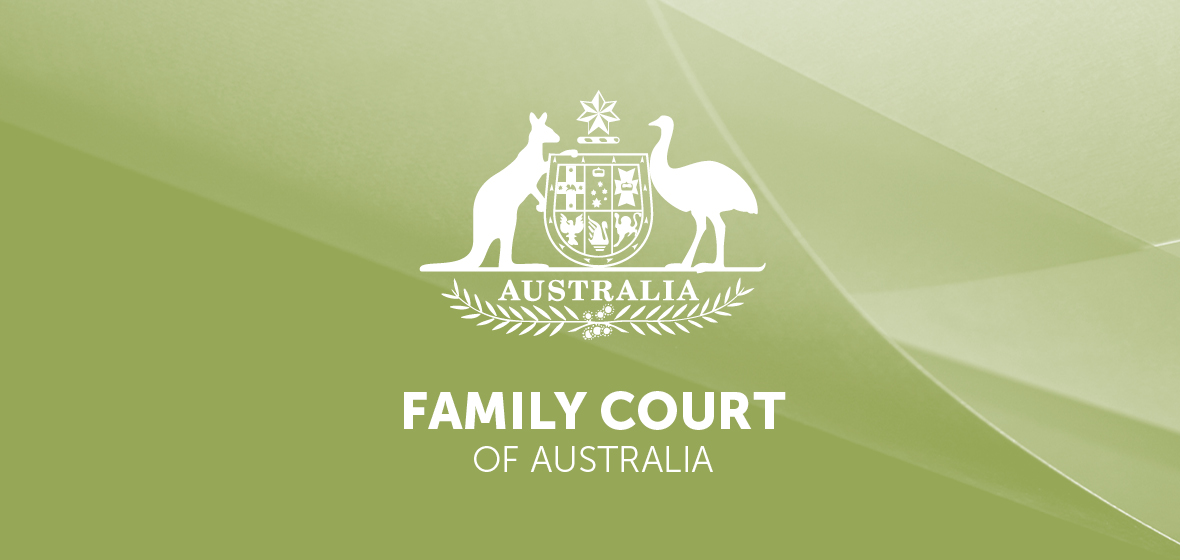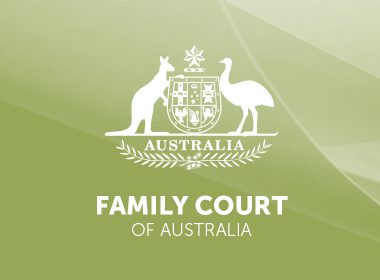Key decisions
- Talbot [2015] FamCAFC 132
- Blinko [2015] FamCAFC 146
- Raine & Creed [2015] FamCAFC 133
- Arranzio & Moss [2015] FamCA 544
Property – Husband’s expenditure of sale proceeds added back in error – What was spent on ‘ordinary living expenses’ not considered
In Talbot [2015] FamCAFC 132 (3 July 2015) the Full Court (Bryant CJ, Murphy & Duncanson JJ) allowed the husband’s appeal against a property order where Moncrieff J notionally added back a premature distribution to the husband of $252,251, being proceeds of sale of real estate just before separation. The Full Court said (at [31] and [51]-[53]): ‘Where one party unilaterally distributes to themselves property which no longer exists and which, but for that premature distribution, would be susceptible to s 79 orders, justice and equity may require the Court to take account of the dissipated property by adding it back as against the dissipating party (Townsend [1994] FamCA 144 … Whether that should occur, or whether the dissipation should be taken into account pursuant to s 75(2)(o), or indeed at all, are all matters requiring the exercise of the trial judge’s discretion (Townsend; Omacini [AJO & GRO] [2005] FamCA 195 … Cerini[1998] FamCA 143)… it was necessary for the trial judge to take account of a number of relevant considerations, one of the most important of which was what the evidence revealed about expenditure from the account into which the funds were banked. That is because, among other things “… parties are entitled to reasonably conduct their affairs post-separation in a manner that is consistent with properly getting on with their lives” (Cerini, supra) and, if money is to be “added back” some three years after it was spent, account must be taken of what the evidence reveals about what was spent on “ordinary living expenses” and of the financial circumstances of the parties more generally. (See, for example, Marker & Marker [1998] FamCA 42.)’ The Full Court went on to find the expenditures fell within the ‘rubric’ of ordinary living expenses and considered that his Honour ‘erred in the exercise of his discretion by … failing to consider matters relevant to the exercise of that discretion.’
Children – Estrangement – Mother’s alleged fear of father – Father made proposals to reintroduce himself to child – Prohibition of contact in error
In Blinko [2015] FamCAFC 146 (23 July 2015) the Full Court (May, Murphy & Tree JJ) allowed the father’s appeal from an order that he spend no time with nor communicate with his child, having not seen her since 2009 when she was 11 months old. The mother alleged that ‘her fear of the father, based upon [a] … history of violence, was so profound that she would not even be able to cope with the child only spending supervised time … with the father’ while he argued that her fear ‘was either not real, or not rational, or both’ (at [16]).
At first instance, Judge Coates accepted the evidence of the mother and that of a psychiatrist ‘that if the child had anything to do with the father … the mother may decompensate to the point where her parenting capacity would be seriously impacted’ (at [17]). The Full Court said (at [30]-[32]): ‘Such an outcome [as an order for no time or communication] needs to be arrived at only after a careful evaluation of all of the other options which might work to enable the child to have the benefit of some kind of relationship with the non-resident parent … [given that] what is at stake is the potential for a child to never know their parent. Here the father’s proposals … identified a range of potential means by which the child could have some relationship with the father.
Not only was it incumbent on the trial judge to consider such options, but in considering each of those alternatives, his Honour ought to have made an informed determination as to the magnitude of any risk to the mother’s psychological health, and hence parental functioning, which attended each of these, to enable him to then consider whether, notwithstanding the safeguards, the risk of harm to the child still remained unacceptable.’
Spousal maintenance – Limit of four years unsupported by evidence
In Raine & Creed [2015] FamCAFC 133 (8 July 2015) the Full Court (Finn, Thackray & Strickland JJ) allowed the wife’s appeal against Aldridge J’s spousal maintenance order.
A year after separation the husband claimed and began receiving payments for severe depression under a disability insurance policy taken out during the parties’ 23 year relationship throughout which the husband ‘suffered from alcoholism’ (at [14]).
The husband received $135,495 as a lump sum and thereafter $3,756 per week which could ‘continue … up to the age of 70 … [but the] insurer could … at any time cease the payments if the insurer determined that the husband was only partially disabled, or was able to resume work’ (at [35]).
The wife appealed the order that the husband pay maintenance of $534 per week for four years, ‘those payments being conditional upon the husband continuing to receive disability insurance payments based on him having a “total disability”’(at [3]). Upon varying the order by removing its four year limit, the Full Court said (at [127] and [133]-[134]):
‘[G]iven that his Honour found that the husband’s ability to [pay] maintenance “will be adversely affected” when the insurance payments cease or lessen, we consider that it was appropriate for his Honour to make his order conditional upon the receipt of those payments … [However] there was no basis on the evidence to terminate the … maintenance in any event after four years. As emphasised by the wife’s senior counsel … [t]here was no evidence to suggest that the wife’s needs would be any different in four years time … [or] that the insurance payments were likely to cease in four years time … [t]he joint contribution to the events that entitled the respondent to the insurance payments … would not suggest that it is unjust for the appellant to continue to receive part of that income stream whilst it is available … [and] [t]he limit of four years was “entirely arbitrary and unsupported by any view of the evidence”’.
Children – Attachment parenting by mother who subjected child to adverse view of father’s parenting – Reversal of care to father
In Arranzio & Moss [2015] FamCA 544 (17 July 2015) Hogan J heard a parenting dispute between parents who held ‘diametrically opposed parenting views’ (at [13]). A family report writer assessed the mother as having implemented ‘attachment parenting’ in which ‘she and the child have consistently co-slept, he was breast fed on demand until he was about 4 years of age and did not attend kindergarten or any other form of outside the home care until then’ (at [7]). Hogan J said (at [38]-[39]): ‘When analysed, the mother’s evidence really amounts to the contention that, such are the father’s failings as a parent, the child does not obtain any benefit from spending time with him … Such a view ignores the unambiguous and consistent observations of the interactions between the child and his father … The … emphatic nature of her opinion that there is nothing the child can gain from the opportunity to spend time with his father provides a clear basis for the father’s concern that, if the child continues to live primarily with her, the likelihood of him receiving true support for an ongoing relationship with him (his father) is slight indeed.’
The Court observed (at [119]) that ‘[a] striking example of the mother’s inability to shield the child from exposure to her view of the father’s parenting of him [was where] … the child told his father that his mother had said he (the father) was a monster and wanted to make him (B) sick’.
Upon ordering that all previous orders be discharged, that the child live with the father, that he have sole parental responsibility and that the child spend alternate weekends and half school holidays with the mother, the Court concluded (at [168]) that ‘there is a significant risk to the child’s long term physical and psychological health if he is not afforded the opportunity to spend significantly greater time in his father’s care’.


